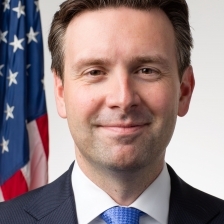A Quote by Michelle Singletary
My grandmother's grandparents were slaves. My grandmother Big Mama would tell me about the stories she heard as a child growing up in the shadows of a North Carolina plantation. It's only been in my lifetime that blacks have had the right to vote, live in certain areas or hold certain jobs. It is with this black history that I write about the financial challenges African-Americans still have.
Quote Topics
About
African
African-American
Areas
Been
Big
Big Mama
Black
Black History
Blacks
Carolina
Certain
Challenges
Child
Financial
Grandmother
Grandparents
Growing
Growing Up
Had
Heard
History
Hold
Jobs
Lifetime
Live
Mama
Me
My Grandmother
North
North Carolina
Only
Plantation
Right
Right To Vote
Shadows
She
Still
Stories
Tell
Up
Vote
Were
Would
Write
Related Quotes
My mom's younger sister was born with Down syndrome. I was close to my grandmother when I was growing up. I remember talking to my grandmother about politics, and she told me that she regularly voted for the Democrats because she knew that they were going to look out for people like her daughter. That made an impression on me, too.
Through my grandmother's stories always life moved, moved heroically toward an end. Nobody ever cried in my grandmother's stories. They worked, or schemed, or fought. But no crying. When my grandmother died, I didn't cry, either. Something about my grandmother's stories (without her ever having said so) taught me the uselessness of crying about anything."
I think her Grandmother Hall gave her a great sense of family love, and reassurance. Her grandmother did love her, like her father, unconditionally. And despite the order and the discipline - and home at certain hours and out at certain hours and reading at certain hours - there was a surprising amount of freedom. Eleanor Roosevelt talks about how the happiest moments of her days were when she would take a book out of the library, which wasn't censored.
I heard a story about a woman who grew up in Texas. When she was having trouble in her life, she would visit her grandmother, who lived nearby and always had a kind word and some wisdom to pass on. One day she was complaining to her grandmother about some situation and her grandmother just turned to her, smiled sadly, and said, "Sometimes, darlin', you've just got to rise above yourself in this life." I've remembered that wise advice many times as I've faced trouble in my life.
You take a look at the history of African Americans in the US. There's been about thirty years of relative freedom. There was a decade after the Civil War and before north/south compact essentially recriminalized black life. During the Second World War there was a need for free labor so there was a freeing up of the labor force. Blacks benefitted from it.
My grandmother is still a woman who worries about what she looks like when she goes outside. She's from that era, and I can remember saying to her, 'Grandmother, we're just going to the grocery store.' And she'd be like, 'I've got to fix my face!' You were very aware of how you were presenting yourself to society in 1960s Las Vegas.
My Big Mama is my No. 1 financial role model. Much of my advice stems from what she taught me. She never made more than $13,000 a year, yet she paid off her home before she retired. She saved money from every paycheck. She taught me to be skeptical. It makes me cry to think that I'm a nationally syndicated personal finance columnist for one of the world's best newspapers and my core advice comes from my black grandmother who was a nurse's aide with just a high school education.
My grandmother, who picked cotton, and my mom, who picked cotton as a child - my grandmother had a work ethic. She had 13 children that she had to raise and ended up for a time moving into the projects, but because my grandmother had a work ethic, she didn't stay in the projects... that's not how she wanted to raise her children.
There's no reason why you can't say "August Wilson, playwright" even though all of my work, every single play, is about black Americans, about black American culture, about the black experience in America. I write about the black experience of men, or I write about black folks. That's who I am. In the same manner that Chekhov wrote about the Russians, I write about blacks. I couldn't do anything else. I wouldn't do anything else.
































